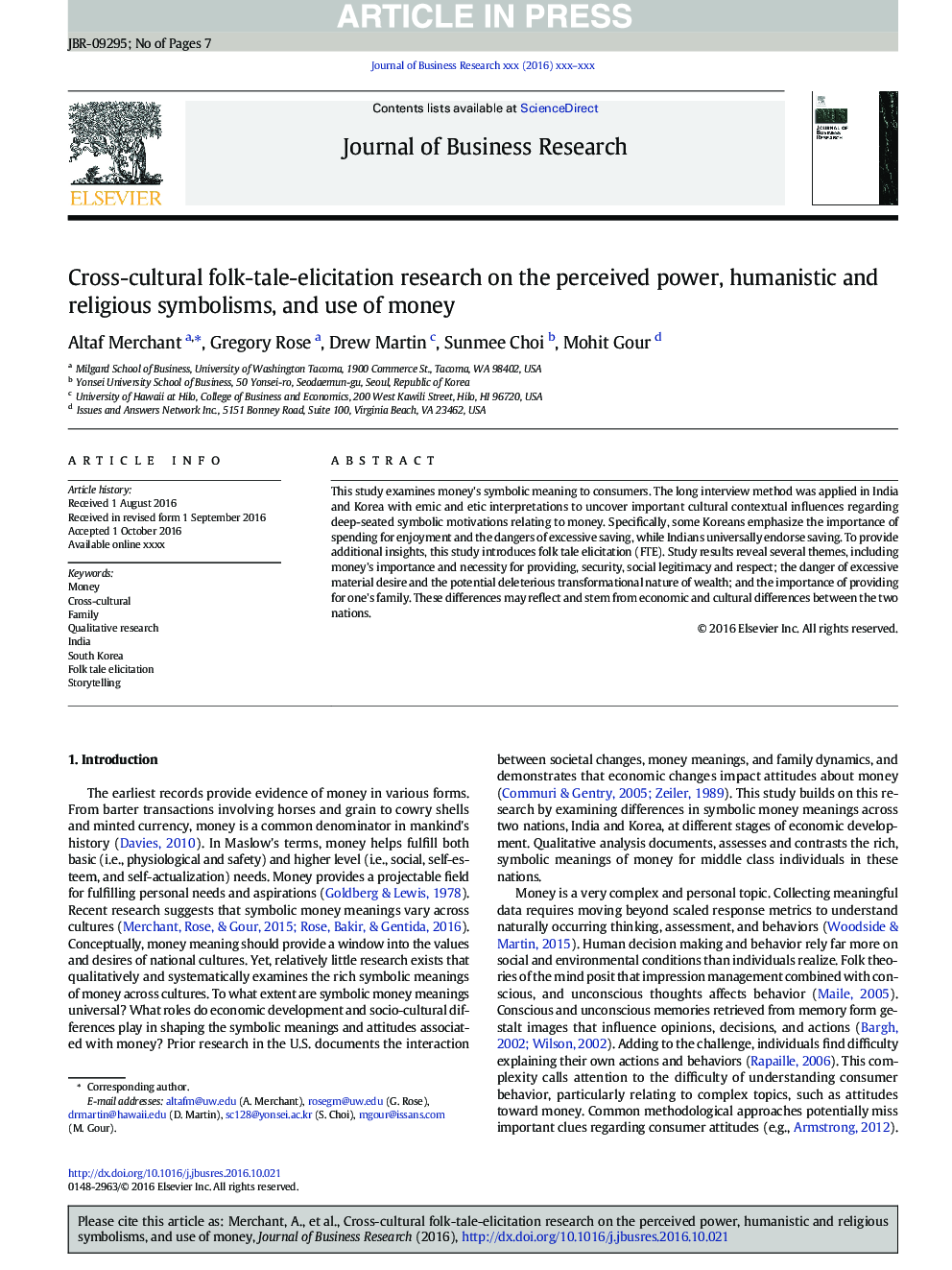| Article ID | Journal | Published Year | Pages | File Type |
|---|---|---|---|---|
| 5109500 | Journal of Business Research | 2017 | 7 Pages |
Abstract
This study examines money's symbolic meaning to consumers. The long interview method was applied in India and Korea with emic and etic interpretations to uncover important cultural contextual influences regarding deep-seated symbolic motivations relating to money. Specifically, some Koreans emphasize the importance of spending for enjoyment and the dangers of excessive saving, while Indians universally endorse saving. To provide additional insights, this study introduces folk tale elicitation (FTE). Study results reveal several themes, including money's importance and necessity for providing, security, social legitimacy and respect; the danger of excessive material desire and the potential deleterious transformational nature of wealth; and the importance of providing for one's family. These differences may reflect and stem from economic and cultural differences between the two nations.
Related Topics
Social Sciences and Humanities
Business, Management and Accounting
Business and International Management
Authors
Altaf Merchant, Gregory Rose, Drew Martin, Sunmee Choi, Mohit Gour,
